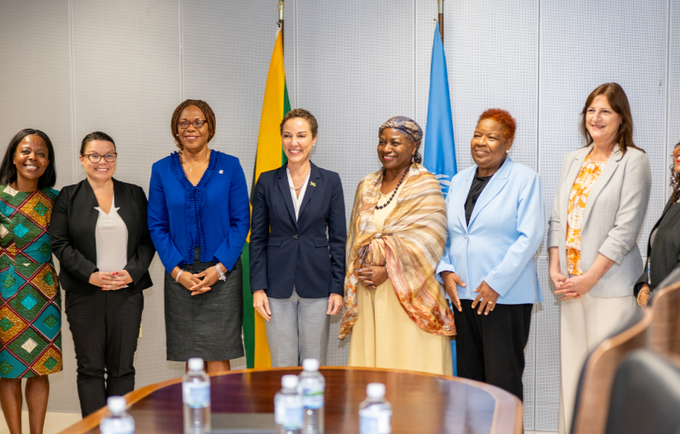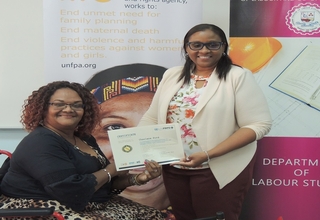The United Nations Population Fund (UNFPA) plays a crucial role in promoting reproductive health, gender equality, and population dynamics worldwide. Recently, the UNFPA's Executive Director embarked on a significant visit to Jamaica, aiming to strengthen partnerships and address key issues related to sustainable development.
The primary objective of the UNFPA's Executive Director's visit to Jamaica was to engage with government officials, civil society organizations, and other stakeholders to assess the country's progress in achieving the Sustainable Development Goals (SDGs), particularly those related to reproductive health, gender equality, and youth empowerment. The visit aimed to identify challenges, share best practices, and explore opportunities for collaboration to accelerate progress towards these goals.
During the visit, the UNFPA's Executive Director participated in various high-level meetings and engagements. These included a courtesy call with the Minister of Foreign Affairs and foreign trade Hon. Kamina Smith, a visit to the Women’s Center Foundation of Jamaica (WCJF) and a visit to the Domestic Violence intervention Center at the police station in Portmore St. Catherine. The DVIC is a project done in collaboration with the United Nations Developnent Fund (UNDP) under the Spotlight Initiative.
Discussions during her visit revolved around several critical areas, including: Reproductive Health and Rights: Recognizing the importance of ensuring universal access to sexual and reproductive health services, the Executive Director emphasized the need for comprehensive sexuality education, family planning, and safe motherhood initiatives. Discussions also focused on addressing gender-based violence and promoting the rights of marginalized groups, such as adolescents and women.
Youth Empowerment: Recognizing the potential of young people as agents of change, the visit emphasized the importance of investing in youth empowerment programs. Discussions centered around providing quality education, skills training, and employment opportunities for young Jamaicans, enabling them to contribute meaningfully to the country's development.
Data and Evidence-Based Decision Making: The visit highlighted the significance of accurate and timely data in formulating effective policies and programs. Discussions centered around strengthening data collection systems, improving data analysis capacities, and utilizing evidence-based approaches to address population dynamics and development challenges.
Partnerships and Collaboration: Recognizing that sustainable development requires collective efforts, the visit emphasized the importance of partnerships and collaboration. The UNFPA's Executive Director explored opportunities to strengthen existing partnerships and forge new alliances with government agencies, civil society organizations, and the private sector to advance the SDGs in Jamaica.
Dr. Kanem's visit to Jamaica served as a significant opportunity to strengthen partnerships, assess progress, and address key issues related to sustainable development. By engaging with various stakeholders, the visit aimed to accelerate efforts towards achieving the SDGs, particularly in the areas of reproductive health, gender equality, and youth empowerment. The outcomes of this visit are expected to contribute to Jamaica's sustainable development agenda and inspire positive change in the lives of its people.




